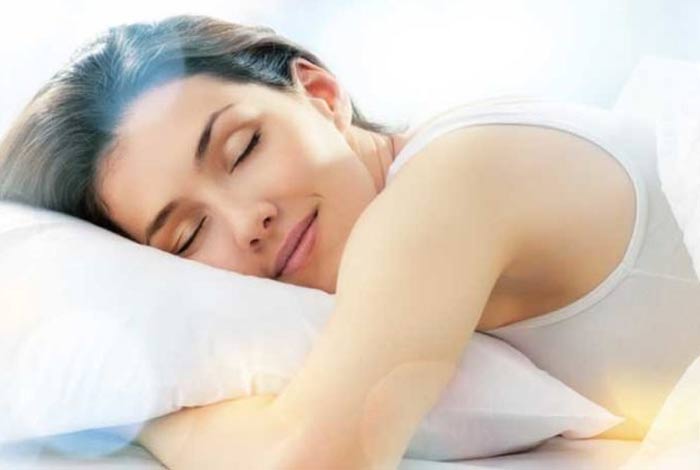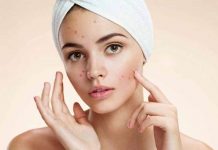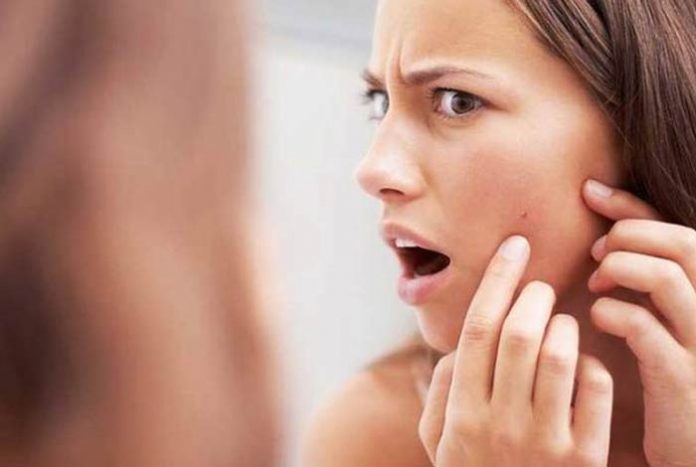
Pimple is a type of acne, i.e. a skin condition in which red spots appear on the body because of the inflammation of hair follicles. It can appear on various body parts such as face, shoulders, chest, back, neck or upper arms.
Apart from causing skin irritation because of inflammation, pimples can be very annoying when grow on the face. Moreover, rubbing or scratching them can result in scars and marks on face.
So, what causes acne and pimples? It generally starts with the clogging of the skin pores with dead skin cells and oil.
The problem is very common and affects approximately about 85% of people. Also, the medical treatment of acne can be expensive sometimes and might affect the skin in various ways, causing dryness, irritation, or redness.
But, it isn’t always necessary to go for medical treatment. There are several home remedies that can help in getting rid of pimples and acne naturally. These natural treatments help in making the skin look flawless without any marks.
Here is a list of nine effective home remedies that help cure pimples:
1. Aloe Vera
Aloe vera can be used to moisturize the skin and can help in getting rid of pimple. It has wound healing and anti-inflammatory properties that can be effective for reducing the skin inflammation and thus helping in curing pimples.
Also, the gel secreted from the leaves of aloe vera is used as an ingredient of various creams, lotions, soaps and ointments. Aloe vera containing products are widely used for the treatment of various skin conditions such as rashes, burns, abrasions, etc.
The components of aloe vera that makes it an effective remedy for treating acne are salicyclic acid and sulfur. Salicyclic acid is a beta hydroxy acid (BHA) which can go deep below the pores of the skin and cleanse them deeply. They are effective in opening up the blocked sebaceous gland. Sulfur can be effective in removing the bacteria that causes pimples.
How to use:
- Scrape the leaves of aloe vera to release the gel and collect it in a bowl.
- Apply the gel directly on the skin, just like a moisturizer.
- Repeat the process 2-3 times a day.
Using aloe vera gel on the face for several days can reduce pimples and can eventually help cure them completely.
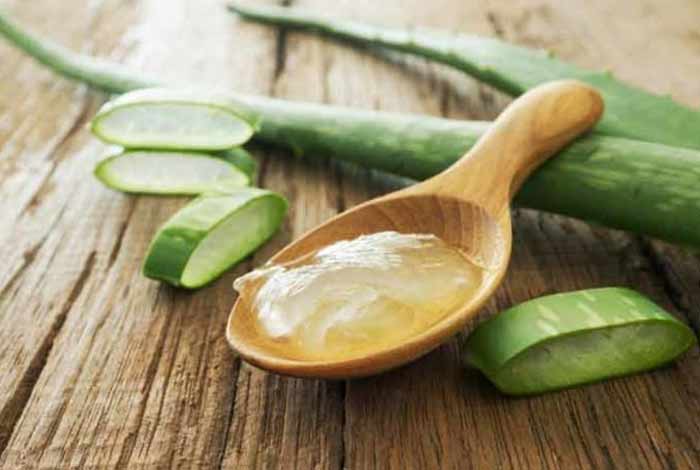
2. Green Tea
Rich with antioxidants, green tea has a variety of health benefits. Regularly drinking green tea can help in weight loss and promotes overall health. However, when it comes to the treatment of acne and pimples, green tea is more effective when applied directly on the skin.
When applied on skin, the components of green tea such as tannins and flavonoids fight off the bacteria that causes acne and help reduce inflammation.
The major antioxidant of green tea is epigallocatechin-3-gallate (EGCG), which can slow down the production of sebum on skin. It also inhibits the growth of the acne-causing bacteria propionibacterium acne, thus helping in the prevention of pimples.
Various studies have also shown that applying green tea on skin can be effective in reducing pimples and acne.
How to use:
- Add green tea to water and boil it for about 3-4 minutes.
- After the color of water changes, put the tea aside for a few minutes and wait till it cools down.
- Apply the tea on skin using a cotton, or spray it on face using a spray bottle (if available).
- Let it dry on face and later wash the face with water.
Dry the face by tapping it with a towel. Rubbing may cause damage to the skin and can also scratch the pimples resulting in scars. Green tea can effectively reduce pimples on face within a few days.
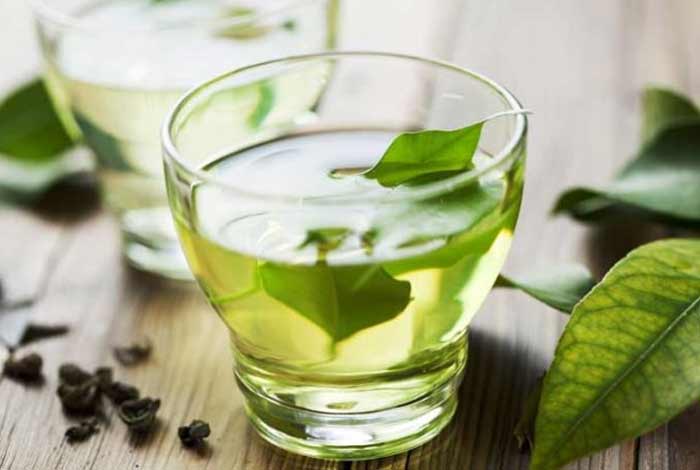
3. Apple Cider Vinegar
Apple cider refers to natural (unsweetened and unfiltered) beverage made from apple. The major component of apple cider vinegar is the alpha hydroxy acid (AHA) that makes it effective for the treatment of pimples. This can help in fighting off Propionibacterium acne and helps in reducing the skin inflammation.
It contains various AHAs that can help in reducing inflammation from the skin and providing relief from irritability caused by acne. It eventually helps in curing pimples.
Some organic acids found in apple cider vinegar are succinic acid and lactic acid. Succinic acid reduces inflammation and lactic acid prevents scars.
How to use:
- Add 1 part of apple cider vinegar to 3 parts of water and mix them together. Also, more water can be used in case of sensitive skin.
- Use cotton to apply the mixture on the face, and keep it applied for at least 5-20 seconds and then clean it with water.
- Use towel to dry the face.
- Repeat the process at least 1-2 times a day.
Apple cider vinegar should only be used in limited amount as it can harm the skin when used in concentrated form. Also, it should only be applied for a short duration as recommended above. This can help in preventing any harm to the skin.
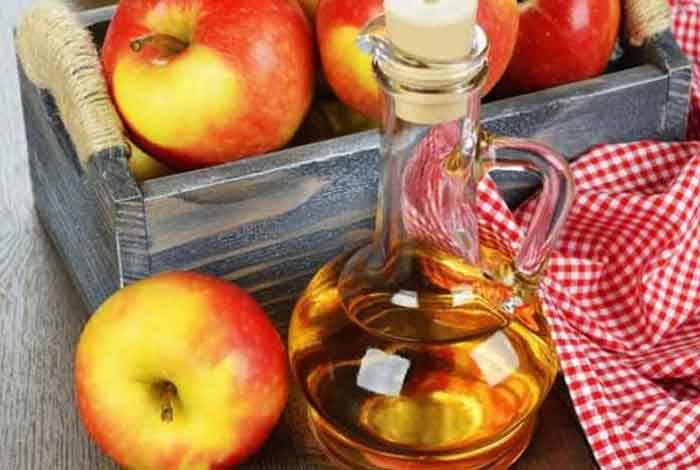
4. Zinc Supplements
Zinc is one of the most essential nutrients and plays a major role in the production of hormones, cell growth, immune function and metabolism. It is found that people suffering from pimple or acne have low levels of zinc in their body. Several studies suggest that zinc is an effective natural treatment of acne.
Some natural zinc supplements include spinach, mushroom, nuts, chocolate, chicken, etc.
Also, it was found that oral consumption of zinc supplement can effectively reduce acne. Moreover, a study conducted on 48 people with pimples and an acne prone skin, revealed that 8 weeks of usage of zinc supplements resulted in 80-100% reduction of the pimples in about 38 people.
How to use:
- Consume 40mg of zinc per day which is the recommended upper limit.
- Use zinc supplement only under the guidance of a medical expert to avoid any complications.

5. Fish Oil Supplements
Fish oil supplements contain omega-3 fatty acids that have multiple health benefits. These supplements are essential for health and can help in reducing inflammation. Thus, they can be effective in reducing skin inflammation that cause acne and pimples.
The two major types of omega-3 fatty acids in fish oil are docosahexaenoic acid (DHA) and eicosapentaenoic acid (EPA). EPA has various major skin benefits such as regulating the production of oil and keeping the face hydrated. Thus, it can be beneficial for the health of the skin and can help in prevention and treatment of pimples and acne.
Consuming fish oil supplements can increase the levels of EPA and DHA in body. It reduces skin inflammation and thus helps in curing acne.
How to use:
- There is no certain recommended dosage for omega-3 fatty acids. However, doctors mostly recommend consumption of 250-500mg of omega-3 fatty acids daily, so that the body has adequate amount of EPA and DHA. Also, wild caught fishes such as salmon can also be used in place of fish oil supplements to fulfill the body’s requirement of omega-3 fatty acids.
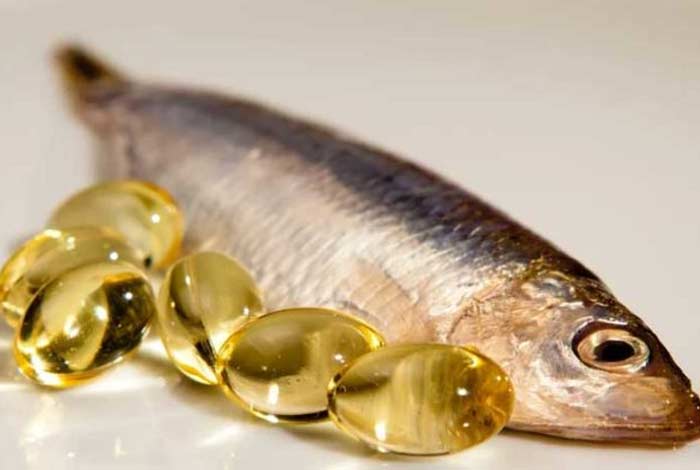
6. Tea Tree Oil
Tea tree oil is extracted from the leaves of Melaleuca alternifolia, a tree that is native to Australia. It has anti-bacterial properties which makes it suitable for treating skin conditions. It helps in reducing skin inflammation. Tea tree oil is effective in fighting the acne-causing bacteria and can clear pimples off the face.
Using 5% tea tree oil can be effective in reducing skin inflammation and helps in the prevention and treatment of pimples. However, using more concentrated amount of tea tree oil can lead to various side-effects such as skin dryness.
How to use:
- Mix 1 part of tea tree oil in 9 parts of water to form a diluted mixture.
- Use cotton to apply the mixture on the areas having pimples.
- Repeat the process at least 1-2 times a day.
Tea tree oil is effective but should always be used in the diluted form, as the concentrated form can harm the skin and worsen the pimples and acne. Also, a person can also apply moisturizer on his or face after applying the diluted oil with the cotton swab.
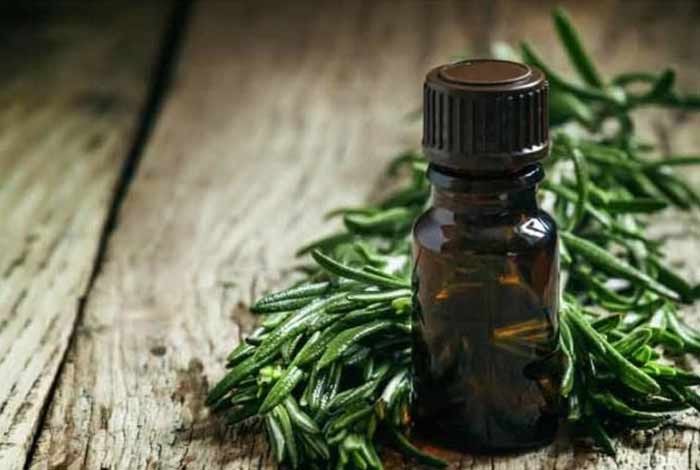
7. Witch Hazel
The leaves or bark of the North-American witch hazel shrub are extracted to get a natural astringent known as witch hazel. One of the constituents of witch hazel is tannins which has various anti-inflammatory and antibacterial properties. So, it is widely used for the treatment of various skin conditions such as burns, eczema, scars, bruises and acne.
Because of witch hazel’s skin benefits, it is widely used as a constituent of various skin care products that can be purchased over the counter.
How to use:
- Take one tablespoon bark of witch hazel and soak it in a cup of water for at least 30 minutes in a saucepan.
- After soaking, boil the mixture.
- Boil the mixture at simmer while covering the top of the sauce pan for at least 10 minutes.
- After boiling, put the mixture aside and let it cool down for about 10 minutes.
- Strain the mixture and put it in a sealed container.
- Apply the mixture at-least 2 times a day for effective results.
If witch hazel bark is not available, commercial witch hazel extracts can also be used to treat pimple. But, these commercial extracts might not be as effective as the natural extract as they may lack tannins.
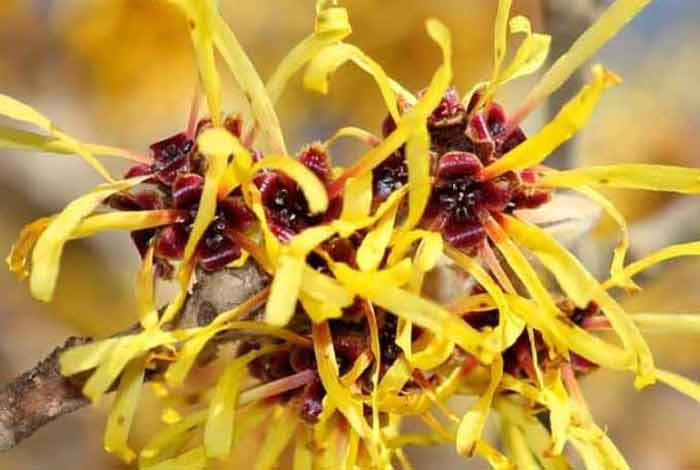
8. Decreased Dairy Consumption
- Various studies suggest that dairy products such as milk and curd can possibly trigger pimples and acne in people.
- The relation between dairy products and acne is rather controversial and requires more research. However, if a person has pimples, it is advised to avoid or limit the use of dairy products to prevent pimples.
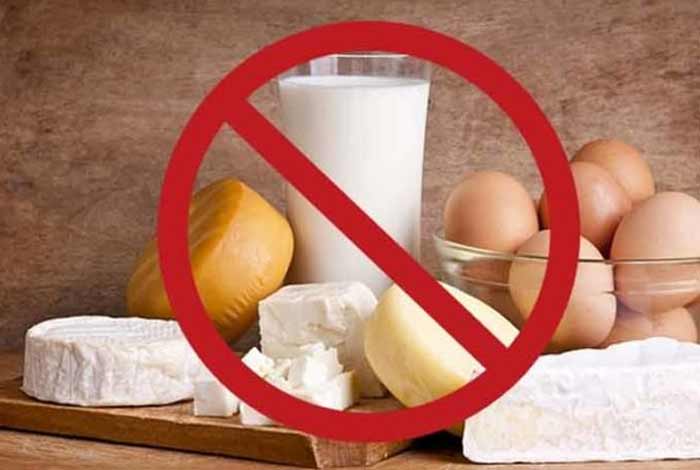
9. Stress Management
According to a study, there are some hormones that are produced in excessive amount during stressful situations. These hormones can trigger the production of sebum by sebaceous glands. This leads to skin inflammation and can cause pimples. Also, taking too much stress can worsen pimples.
Moreover, excessive stress can slow down the healing of the wounds by nearly 40 percent. This affects the healing of pimples and acne. So, stress management is necessary to control the growth of pimples.
How to Manage Stress?
There are various methods that can help in managing stress, these are:
- Getting enough sleep can help in providing rest to the body and helps in relieving stress. Sleeping 7-8 hours every day can relieve stress from the body and mind.
- Exercise regularly as engaging in physical activities can be helpful in reducing stress. A regular workout regime can be helpful in reducing stress.
- Yoga and meditation can play a major role in calming down the mind and effectively reduce everyday stress.
- Deep breathing can help during stress.
